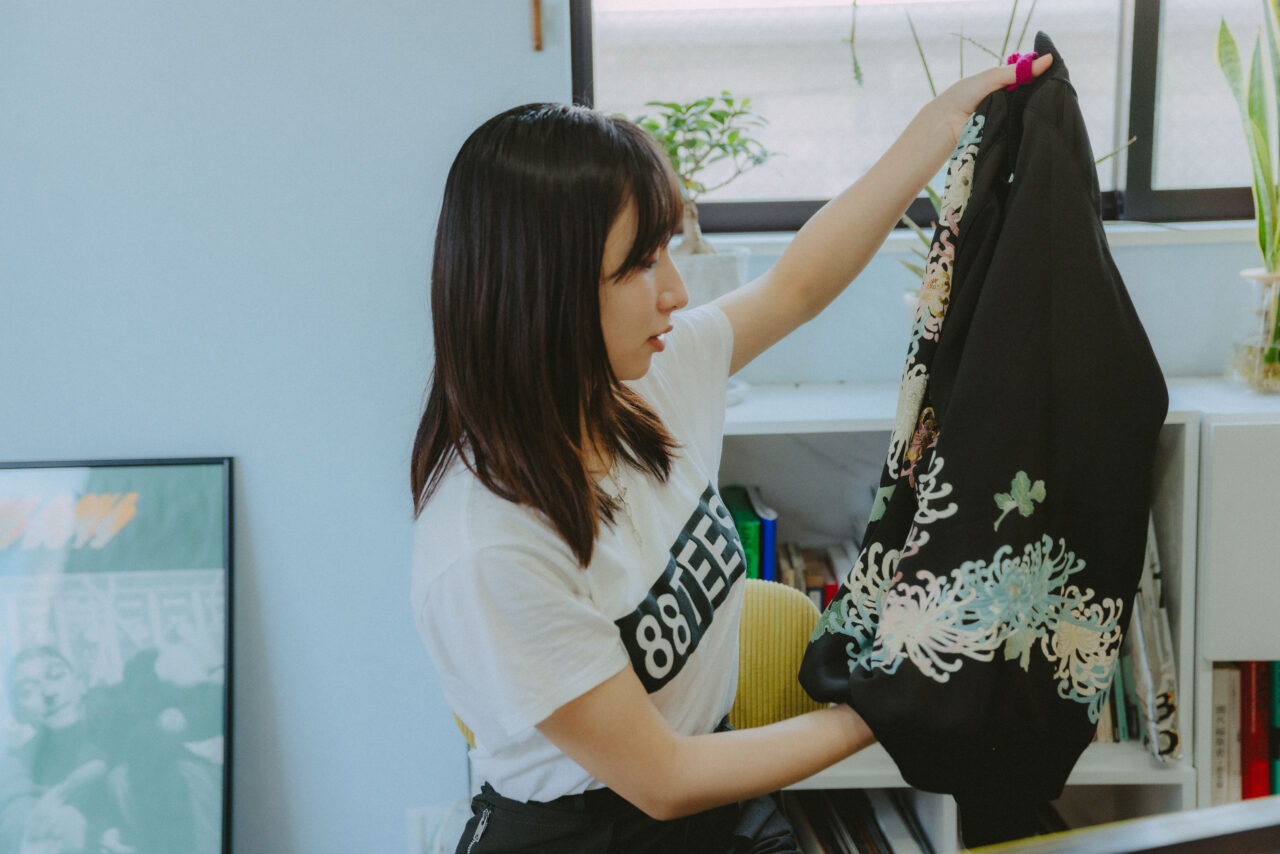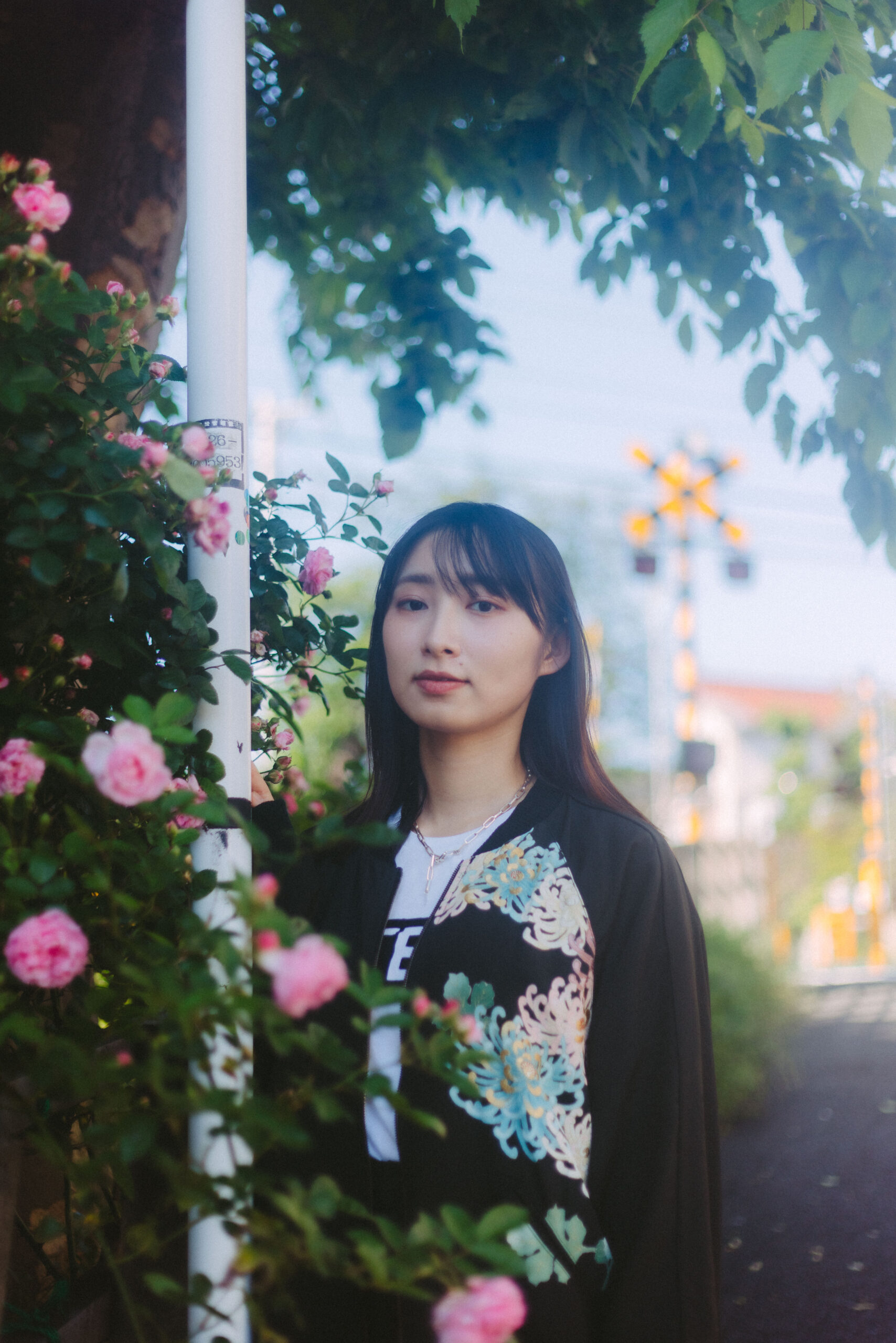INDEX
Making the Shamisen More Casual and Approachable
What’s your vision of the perfect live show?
Komada: I want my concerts to be a place where people leave feeling energized and uplifted—where they think, “Going to Sayo Komada’s show really lifts my spirits.”
Since the pandemic, I’ve noticed music often leans toward loud, dark, or harsh expressions. But I’m drawn to music that encourages people with bright, hopeful messages. To me, music shouldn’t just create empathy—it should give people the strength to keep moving forward. Instead of dwelling on life’s darker moments, I want to offer music that warmly invites listeners onward with positive energy.

What are your future goals as a shamisen player?
Komada: My goal is to make the shamisen feel more casual and accessible. It’s not about increasing the number of professional players, but about broadening the circle of people who connect with the instrument. Historically, the shamisen was much closer to everyday life, and folk songs were deeply tied to local communities. Before the era of radio and the internet, songs like planting songs spread across distant regions through oral tradition, changing and adapting as they went—like a huge game of telephone, which I find fascinating. I want people to feel the shamisen not just as a revered “tradition” but as something familiar and approachable.
That’s why I share pop covers on social media and include songs beyond folk music in my performances. I want to bring the shamisen back into people’s daily lives. To grow the shamisen community, I’m also working on publishing sheet music and learning how to repair the instrument. When I started, information was scarce, and I want to make it easier for anyone to pick up the shamisen. The number of people who can repair shamisen is actually declining faster than the number of players, so I’m gradually learning repairs myself. Since shamisen are meant to be maintained and played for many years, proper repairs are essential. This is especially true for players abroad, who often struggle to get repairs and sometimes resort to makeshift fixes. Many of my online students are overseas, so I hope to support them in these ways as well.


























